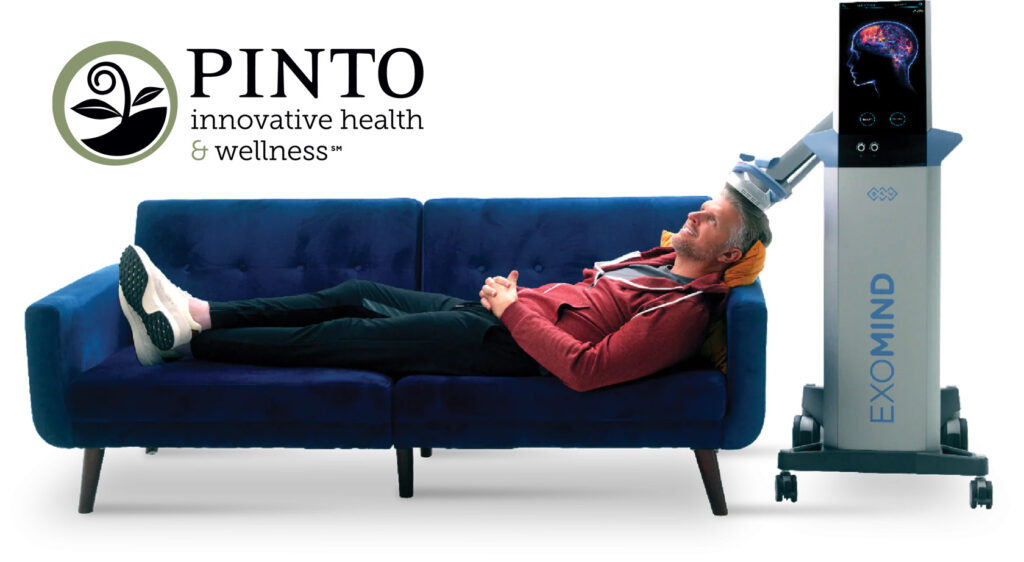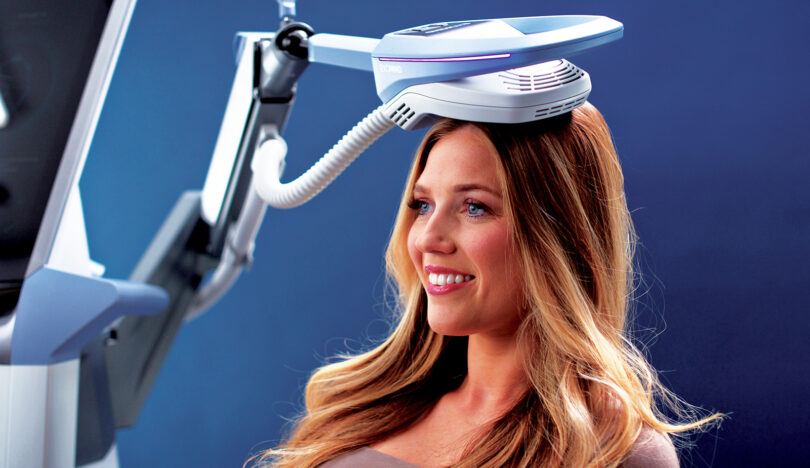In today’s fast-paced and information-driven world, mental clarity is a precious commodity. Many people experience “brain fog,” a frustrating state of mental cloudiness that hampers focus, memory, and decision-making. Whether triggered by stress, poor sleep, or underlying health conditions, brain fog can significantly impact daily life. Enter Exomind—a cutting-edge mental wellness treatment that’s generating buzz for its potential to address brain fog and other cognitive and emotional challenges. But what exactly is Exomind, and can it truly clear the mental haze?
What is Exomind?
Exomind is a non-invasive, FDA-cleared mental wellness treatment developed by BTL Industries, known for their non-invasive treatments and strong presence in physical therapy, cardiology, and medical aesthetics. It’s designed to enhance emotional resilience, cognitive function, and overall brain health. Exomind utilizes a proprietary technology called ExoTMS™, an advanced form of transcranial magnetic stimulation (TMS), to deliver targeted magnetic pulses to specific brain regions, particularly the dorsolateral prefrontal cortex (DLPFC). This area of the brain is critical for mood regulation, executive function, and cognitive clarity. By stimulating underactive neural pathways, Exomind promotes neuroplasticity—the brain’s ability to adapt and form new connections—offering a drug-free alternative to traditional mental health treatments.
Unlike medications that alter brain chemistry systemically, Exomind works by directly stimulating nerve cells with magnetic pulses, helping to “rewire” neural circuits. Sessions typically last 25–30 minutes, are comfortable, and require no downtime, allowing patients to resume daily activities immediately. Exomind is also FDA-cleared for major depressive disorder (MDD) and approved in some regions for conditions like anxiety, obsessive-compulsive disorder (OCD), and excessive eating behaviors. Emerging research and clinical applications suggest it may also address brain fog, post-traumatic stress disorder (PTSD), and addictive behaviors.
What is Transcranial Magnetic Stimulation (TMS)?
Transcranial magnetic stimulation (TMS) is a non-invasive neuromodulation technique that uses magnetic fields to stimulate nerve cells in targeted brain regions. Developed in the 1980s and FDA-approved in 2008 for treatment-resistant depression, TMS involves placing a magnetic coil near the scalp to generate brief magnetic pulses. These pulses induce small electrical currents in the brain, modulating neuronal activity to improve symptoms of various mental health conditions.
TMS primarily targets the DLPFC, which is often underactive in individuals with depression, anxiety, or cognitive impairments. By enhancing neural activity and connectivity, TMS helps restore balance in brain circuits responsible for mood, focus, and decision-making. Traditional TMS protocols typically involve daily sessions lasting up to an hour over 4–6 weeks, with patients reporting mild side effects like scalp discomfort or headaches. TMS has become a cornerstone of non-pharmacological mental health treatment, offering a safe alternative for those who don’t respond to medications or prefer to avoid their side effects.
What Else Does Exomind Treat?
Beyond its FDA clearance for depression, Exomind shows promise for a range of mental wellness concerns. By targeting the DLPFC and enhancing neuroplasticity, Exomind can address conditions associated with dysregulated brain activity. These include:
- Anxiety Disorders: May reduce symptoms of generalized anxiety and panic disorder by strengthening inhibitory pathways from the prefrontal cortex to the amygdala, which governs fear responses, highlighting its potential for addressing related cognitive impairments like brain fog.
- Obsessive-Compulsive Disorder (OCD): Specific protocols target brain regions linked to OCD, helping to alleviate intrusive thoughts and compulsive behaviors with benefits extending to executive function and mental clarity.
- Post-Traumatic Stress Disorder (PTSD): Can promote emotional stability and reduce hypervigilance in PTSD patients by enhancing neural connectivity.
- Addictive Behaviors: Clinical reports suggest Exomind helps curb cravings for food, alcohol, or nicotine by improving self-control and regulating reward pathways.
- Sleep Disorders: Patients with insomnia often report improved sleep patterns after Exomind sessions, likely due to its regulation of the brain’s sleep-wake cycle.
- Cognitive Optimization: Marketed as a tool for high-performers, such as entrepreneurs and professionals, seeking to enhance focus, memory, and decision-making.
While some of these applications, like PTSD and food cravings, are considered off-label in the U.S., early clinical feedback and patient reviews indicate positive outcomes, particularly for brain fog and cognitive clarity.

Pinto Innovative Health and Wellness’s Brain Longevity Program is designed to help you protect and enhance your brain health through proactive interventions and personalized strategies.
How is Exomind Different from Traditional TMS?
Exomind builds on the foundation of traditional TMS but introduces several advancements that enhance its efficacy, comfort, and accessibility. Key differences include:
- Advanced Technology (ExoTMS™): Exomind’s patented ExoTMS™ technology uses precisely calibrated magnetic pulses and a specialized signal pattern to target brain cells with greater accuracy, minimizing stimulation of non-target tissues. This results in a more focused treatment compared to traditional TMS, which uses standardized protocols.
- Personalized Targeting: Incorporates real-time brain mapping and AI-assisted targeting to tailor stimulation to an individual’s unique neural patterns. Traditional TMS typically applies a one-size-fits-all approach, which may be less effective for some patients.
- Shorter, Less Frequent Sessions: Sessions last 25–30 minutes and are often administered weekly for about six weeks, compared to traditional TMS, which may require daily sessions for up to 30 days, each lasting up to an hour. This makes Exomind more convenient for busy individuals.
- Enhanced Comfort: The headset design reduces scalp discomfort and headaches, common side effects of traditional TMS. Patients describe Exomind sessions as sensationless or mildly soothing, improving the overall treatment experience.
- Broader Applications: While traditional TMS is primarily used for depression, Exomind’s design supports cognitive optimization and a wider range of conditions, including brain fog, stress, and addiction, making it a versatile tool for mental wellness.
- Cost-Effectiveness: Some providers, like Evexia Medspa, report that Exomind is more affordable than traditional TMS, with treatment plans costing around $3,600 compared to $8,000 for traditional TMS without insurance.
These advancements position Exomind as a next-generation TMS platform, offering a more tailored, efficient, and patient-friendly approach to brain stimulation.
What Are the Benefits of Exomind?
Exomind offers a range of benefits, particularly for those seeking non-pharmacological solutions for mental wellness. Based on clinical studies and patient feedback, key benefits include:
- Improved Mood and Emotional Resilience: By stimulating the DLPFC, Exomind reduces symptoms of depression and anxiety, with studies reporting up to 68% of patients with treatment-resistant depression experiencing significant improvement and 45–55% achieving remission.
- Enhanced Cognitive Function: Exomind boosts focus, memory, and executive function, making it ideal for individuals experiencing brain fog or seeking cognitive optimization. Patients report clearer thinking and improved problem-solving after sessions.
- Better Sleep: Exomind helps regulate sleep patterns, alleviating insomnia and improving sleep quality, which is critical for mental clarity and overall health.
- Reduced Cravings and Addictive Behaviors: Clinical data indicates that 95% of patients experience reduced food cravings, with some losing an average of 4 pounds after a treatment series.
- Minimal Side Effects: Unlike antidepressants, which can cause fatigue, weight gain, or emotional numbness, Exomind has a low side effect profile, with only 15% of patients reporting mild scalp discomfort and 10% experiencing temporary headaches.
- No Downtime: The non-invasive, 30-minute sessions allow patients to resume normal activities immediately, fitting seamlessly into busy schedules.
- Long-Term Mental Resilience: By promoting neuroplasticity, Exomind supports lasting improvements in brain function, helping patients build emotional stability and cognitive strength over time.
Can Exomind Treat and Clear Brain Fog?
Brain fog, characterized by mental fatigue, poor concentration, and memory lapses, is a common complaint among individuals experiencing stress, burnout, or underlying mental health conditions. Exomind’s ability to target the DLPFC and enhance neural connectivity makes it a promising tool for addressing brain fog. By stimulating underactive brain regions, Exomind improves mental processing speed, focus, and clarity, which are often impaired in brain fog.
Clinical feedback supports this application. For example, a New York Post feature highlighted a patient who used Exomind to combat stress and brain fog, reporting improved task focus, better planning, and balanced emotions after sessions. Additionally, 90% of participants in Exomind studies reported improved mental well-being, with many noting clearer thinking and reduced mental haze. The 2023 study in the Journal of Affective Disorders further supports this, noting that TMS targeting the DLPFC improved cognitive function and mental clarity in 68% of participants with anxiety, suggesting Exomind’s advanced ExoTMS™ technology could yield even better results. Similarly, the 2022 meta-analysis in Progress in Neuro-Psychopharmacology and Biological Psychiatry found that TMS enhanced executive function and mental clarity in OCD patients, indicating potential benefits for brain fog associated with stress or other conditions. Providers like Dr. Yael Halaas, a pioneer in Exomind therapy, emphasize its ability to enhance cognitive function, making it ideal for professionals and students seeking mental clarity.
Dr. Emilie Pinto of
Pinto Innovative Health and Wellness, underscores Exomind’s potential for brain fog: “Exomind can be a game-changer for patients struggling with brain fog. By enhancing neural connectivity and promoting neuroplasticity, it helps restore the brain’s natural ability to process information clearly and efficiently, offering a non-invasive path to mental clarity with no down time.”
Exomind represents a significant advancement in mental wellness, offering a non-invasive, drug-free solution for depression, anxiety, brain fog, and more. By leveraging ExoTMS™ technology, Exomind delivers precise, comfortable, and efficient brain stimulation, setting it apart from traditional TMS. Its ability to enhance neuroplasticity and target the DLPFC makes it a promising tool for clearing brain fog, improving focus, and restoring emotional balance. Supported by clinical research and expert insights, Exomind transforms how we approach mental clarity and cognitive optimization. For those struggling with mental haze or seeking a natural alternative to medications, Exomind offers a hopeful and a more cost effective path forward from traditional transcranial treatments. Consult a healthcare provider to determine if Exomind is right for you and take the first step toward a clearer, more resilient mind.




